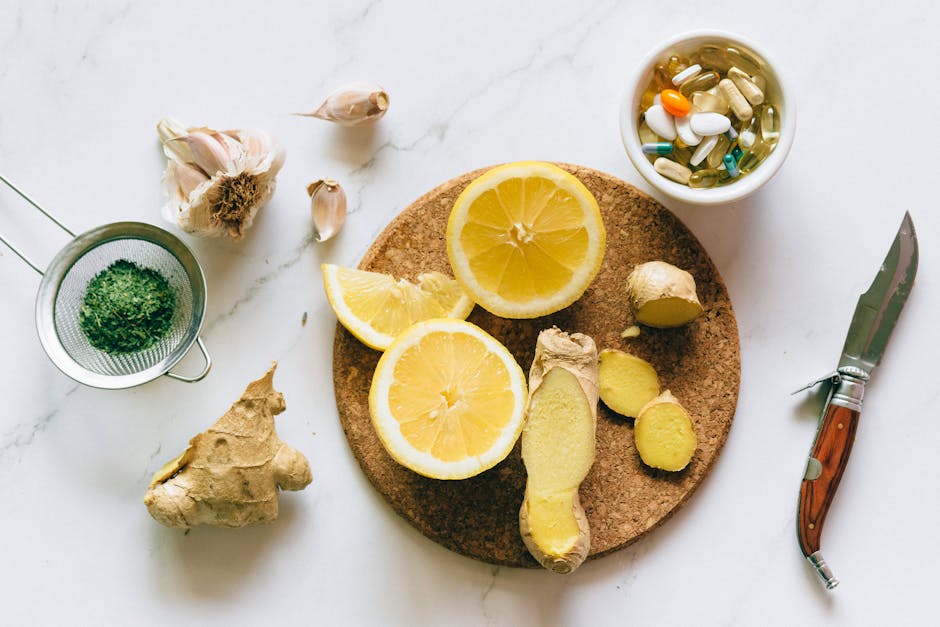The human immune system, a complex network of cells, tissues, and organs, constantly defends against a barrage of pathogens. Maintaining its optimal function is crucial for overall health and well-being. While pharmaceuticals play a role in managing specific immune deficiencies, considerable interest surrounds natural methods for bolstering immune response. This article explores the evidence supporting various natural approaches to immune system enhancement, clarifying their mechanisms of action and highlighting limitations.
Dietary strategies represent a cornerstone of natural immune support. A balanced diet rich in fruits, vegetables, and whole grains provides the essential micronutrients required for immune cell function. Vitamin C, a potent antioxidant, plays a crucial role in supporting immune cell activity, particularly in the production and function of lymphocytes, white blood cells responsible for targeting and eliminating pathogens. Citrus fruits, berries, and leafy green vegetables are excellent sources. Vitamin D, often called the “sunshine vitamin,” is vital for immune regulation; it influences the expression of antimicrobial peptides and modulates immune cell differentiation. Exposure to sunlight and consumption of fatty fish, egg yolks, and fortified foods can increase Vitamin D levels. Zinc, a trace mineral, is essential for numerous immune processes, including the function of T cells and natural killer cells. Oysters, red meat, and legumes are good sources of dietary zinc. Further, adequate intake of B vitamins, particularly B6 and B12, and minerals such as selenium and iron contribute to overall immune health. A diet deficient in these nutrients can compromise immune function, highlighting the significance of nutritional adequacy. It’s important to note that while nutrient deficiency can impair immunity, simply increasing intake beyond recommended levels does not necessarily lead to further immune benefits and may even be harmful.
Beyond specific nutrients, focusing on overall dietary patterns significantly impacts immunity. The Mediterranean diet, characterized by abundant fruits, vegetables, legumes, whole grains, and healthy fats like olive oil, demonstrates consistently positive associations with improved immune function and reduced risk of chronic diseases. This likely results from a combined effect of numerous bioactive compounds present in the diverse range of foods, rather than a single magic bullet. Conversely, diets high in processed foods, saturated fats, and added sugars are linked to chronic inflammation and immune dysfunction. These diets can disrupt gut microbiota composition, leading to a reduction in beneficial bacteria that contribute to immune homeostasis.
Physical activity plays a surprisingly multifaceted role in boosting immune function. Moderate-intensity exercise, such as brisk walking or cycling, stimulates the production of immune cells and enhances their activity. Regular exercise promotes healthy blood circulation, facilitating the efficient delivery of immune cells to sites of infection or inflammation. However, excessive or strenuous exercise can have the opposite effect, suppressing immune function temporarily. Finding the balance is crucial. Exercise also contributes to weight management, which is essential because obesity is associated with chronic low-grade inflammation and impaired immune response.
Stress management is equally crucial. Chronic stress triggers the release of cortisol, a hormone that can suppress the immune system. Effective stress management techniques, such as mindfulness meditation, yoga, deep breathing exercises, and sufficient sleep, help regulate cortisol levels and improve immune function. Sleep deprivation significantly impacts immune competence, making sufficient, quality sleep a critical factor in maintaining a robust immune response. Aiming for 7-9 hours of uninterrupted sleep each night is paramount for optimal immune function.
Herbal remedies have a long history of use in traditional medicine for boosting immunity. Certain herbs, such as echinacea, ginseng, and elderberry, have shown some evidence of immune-modulating effects in preclinical studies and some clinical trials. Echinacea, for example, appears to stimulate immune cell activity, potentially reducing the duration and severity of upper respiratory tract infections. Ginseng exhibits a range of potential immunomodulatory effects, while elderberry may possess antiviral properties. However, evidence regarding the efficacy of these herbal remedies is often limited, and rigorous, large-scale clinical trials are needed to confirm their benefits. Moreover, interactions with other medications are possible, necessitating caution and consultation with a healthcare professional before incorporating them into a healthcare plan.
Probiotics, live microorganisms that confer health benefits when ingested, also hold promise for immune enhancement. Gut microbiota plays a pivotal role in immune regulation, and imbalances in this microbiome can contribute to immune dysfunction. Consumption of yogurt, kefir, and other fermented foods containing beneficial bacteria, or supplementation with probiotic strains, can potentially restore a healthy gut microbiome, thereby improving immune function. However, the effects of probiotics vary depending on the specific strains and individual responses, underscoring the need for careful consideration of probiotic choices.
In conclusion, bolstering the immune system naturally involves a multifaceted approach encompassing a healthy diet rich in micronutrients and diverse plant-based foods, regular moderate exercise, effective stress management, adequate sleep, and mindful consideration of herbal remedies and probiotics. While compelling evidence supports the immune-enhancing effects of these lifestyle choices, it’s vital to approach them with balanced perspective. Individual responses may vary, and some interventions require further research to confirm their efficacy and safety. No single strategy guarantees robust immunity, but a holistic, integrated approach offers the most effective pathway towards optimal immune health. Consulting with healthcare professionals before making significant dietary or lifestyle changes, particularly when considering herbal remedies or supplements, is crucial for personalized guidance and the avoidance of potential adverse effects. The ultimate goal is not simply to “boost” the immune system to an unrealistic level but to support its natural, balanced functioning to maintain overall well-being.
